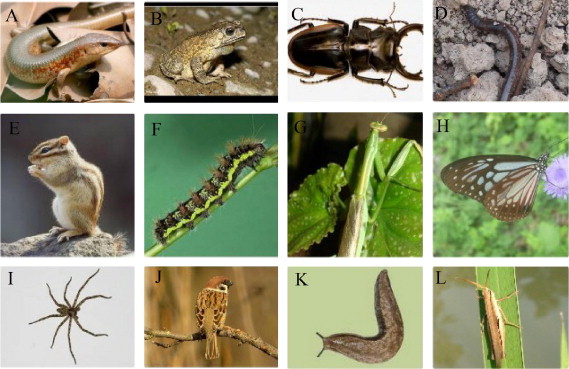According to studies, Chinese children are faced with the extinction of nature experience. Systematic studies to understand how contact with nature declines along the urbanization gradient and the possible consequence of this decline for psychology and attitudes to biological conservation in China are needed.
Prof. CHEN Jin and a few students of Xishuangbanna Tropical Botanical Garden (XTBG) have been focusing on studying environmental education these years. In a study conducted in 2012, they aimed to explore whether children’s affective attitudes (like and fear) – biophilia and biophobia – towards mounted displays of common but ecologically significant animals could affect their conservation attitudes. Further, they looked into whether contact with nature also directly affected conservation attitudes, or did so indirectly, mediated through biophilia and biophobia.
They conducted an intensive survey of primary school children aged 9–10, from schools spread geographically across China and along the urbanization gradient. They designed a questionnaire that addressed the following topics: (1) children’s contact with nature, (2) children’s biophilia, (3) children’s biophobia, (4) willingness to conserve animals and (5) their general attitudes toward animal conservation.1119 pupils filled out questionnaires.
Mounted specimens of common but ecologically significant animals (including Chinese toad, butterfly, beetle, earthworm, sparrow, spider, etc.) were used to measure children’s attitudes towards animals. The species chosen were common (distributed across the whole country) and a good representation of different animal groups (mammals, birds, reptiles, amphibians, spiders, and insects).
Their study found that the children’s contact with nature was significantly positively related to their biophilia and negatively related to their biophobia. Children’s biophilia, in turn, significantly affected their willingness to conserve animals, and, to a lesser extent, their general attitudes about conservation.
The study suggested that contact with nature may enhance children’s willingness to support animal conservation indirectly by nurturing biophilic attitudes to wildlife. Their findings affirmed the idea that a decline in human interactions with the natural world, known as the “extinction of experience”, is a threat to the conservation of biodiversity.
The study entitled “How contact with nature affects children’s biophilia, biophobia and conservation attitude in China” has been published online in Biological Conservation.

The 12 species of common wild animals that were used to test children’s biophobia, biophilia and their willingness toward animal conservation.
(Image by Zhang Weizhe)

